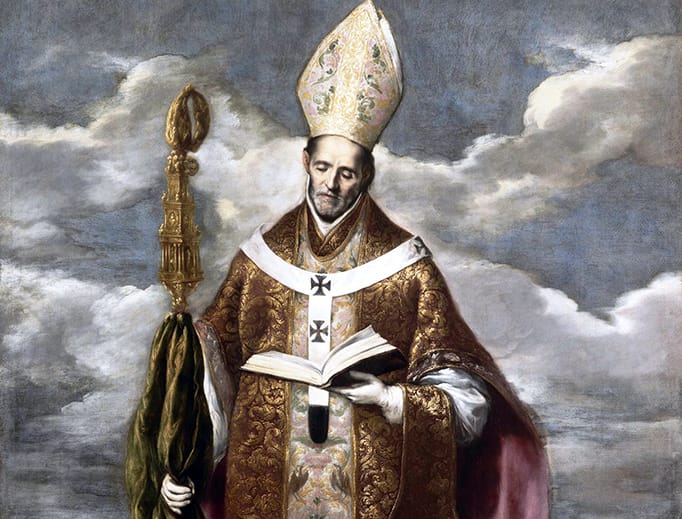Hey everyone,
Today, we’re unpacking the life of a 4th-century giant who is, in my opinion, criminally underrated. His name is Basil the Great.
Most people hear "saint" and they picture a quiet, passive figure in a stained-glass window.
That's not Basil.
Basil was a theological heavyweight, a logistical genius, and an immovable object. He was an aristocrat who renounced his wealth, a scholar who became a man of action, and a bishop who told a furious Roman Emperor exactly where he could go.
This story is about raw courage, radical generosity, and what it means to build something that outlasts an empire.
Let's get into it.
Part 1: The Showdown (The Emperor vs. The Bishop)
To understand Basil, you have to understand the showdown that defined his life.
Let's set the scene. The year is ~372 AD.
The Roman Emperor, Valens, is on a warpath. He’s not just a ruler; he’s a heretic-backing tyrant, pushing a doctrine called Arianism, which denied the divinity of Christ. Valens’ policy was simple: convert to his brand of Christianity, or be exiled, persecuted, or worse.
His henchmen were brutal. They desecrated churches, murdered priests, and burned Orthodox believers alive on ships.
And then, this imperial steamroller arrived in Basil's city, Caesarea.
Valens sent his prefect, Modestus, to handle the city’s stubborn bishop. Modestus was the emperor's "fixer," and he summoned Basil with one goal: intimidate him into submission.
Modestus threatened Basil with everything in the tyrant's toolkit:
Confiscation of all his property.
Banishment from the empire.
Torture.
Death.
Basil, who was physically frail and already suffering from liver disease , essentially laughed in his face.
He replied (and I’m paraphrasing):
Poverty? You can't take what I don't have. I own nothing but these "few rags and books."
Banishment? The entire earth is God's. Banishment can't remove me from His care.
Torture? This body is already "almost dead." It can't harm me.
Death? That would be a "friend," as it would send me to God faster.
Modestus was stunned. He exclaimed that no one had ever spoken to him that way.
Basil’s reply is one of the coldest lines in history: “Perhaps,” Basil said, “you have never met a bishop before.”

The prefect reported back to Emperor Valens, defeated. The story goes that Valens, a man described as "obese and had crooked legs," was so unnerved by Basil's "upright carriage" and absolute lack of fear that he backed down.
The emperor, who ruled the known world, couldn't break one sick bishop.
Part 2: Who Was This Guy? (The 30-Second Bio)
So, how does a person become this fearless?
Basil wasn't born a tough-as-nails ascetic. He was born rich. Stupid rich.
The Setup: Born around 330 AD in Cappadocia (modern-day Turkey), Basil was part of a wealthy and famous Greek family. His family was a literal factory for saints: his mother (Emmelia), grandmother (Macrina the Elder), sister (Macrina the Younger), and two brothers (Gregory of Nyssa and Peter of Sebaste) are all venerated as saints. He got the best education money could buy in Caesarea, Constantinople, and finally Athens, the "very center of scholarship".
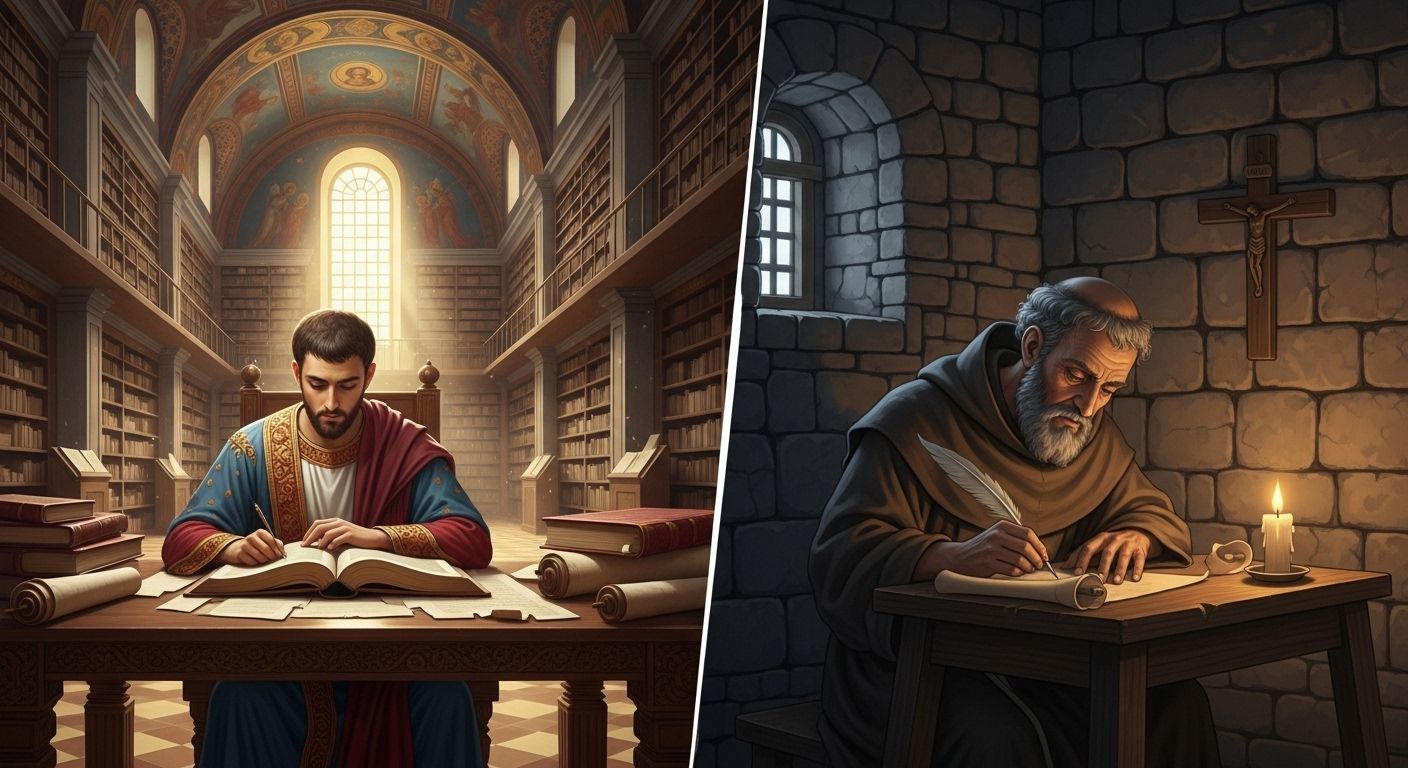
The Pivot: He was on the fast track to being a celebrity teacher of rhetoric. But his life "changed radically" after he met a charismatic ascetic named Eustathius of Sebaste. He realized his worldly ambition was empty.
He was baptized, gave away his inheritance, and toured Egypt, Palestine, and Syria to study ascetics and monasticism. He chose a life of "gospel poverty" and founded one of the first monasteries in Asia Minor.
This is the key: his courage in front of the emperor didn't come from nowhere. He had already given up everything the world could take.
Part 3: 3 "Truth Bombs" from Basil on Wealth & Purpose
Basil’s writings on wealth and poverty are so sharp, they’re still shocking 1,700 years later.
He didn't just suggest giving a little to charity. He argued that hoarding anything beyond your immediate need was, in fact, theft.
Here are three of his most potent "truth bombs":
1. On Hoarding: "When someone steals another's clothes, we call them a thief. Should we not give the same name to one who could clothe the naked and does not? The bread in your cupboard belongs to the hungry; the coat unused in your closet belongs to the one who needs it; the shoes rotting in your closet belong to the one who has no shoes; the money which you hoard up belongs to the poor.”

He’s not asking for a donation. He’s re-framing ownership. In his view, that extra coat is not yours. It already belongs to the person who needs it. You’re just holding it.
2. On 'Virtue Signaling': "I know many who fast, pray, sigh, and demonstrate every manner of piety, so long as it costs them nothing, yet would not part with a penny to help those in distress.”
This is a 4th-century subtweet of everyone who talks a good game but never acts. He argued that your love for your neighbor is a meaningless sentiment if it doesn't result in the "expenditure of wealth".
3. On 'Hustle Culture' and Prayer: "This is how you pray continually — not by offering prayer in words, but by joining yourself to God through your whole way of life, so that your life becomes one continuous and uninterrupted prayer.”
For Basil, there was no work-life balance. Your "work" is your prayer. Your "life" is the sermon. Your actions are your theology.
Which brings us to his greatest achievement.
Part 4: He Didn't Just Talk. He Built. (The Basiliad)
Here’s the kicker: Basil wasn’t just a talker. He took his family's renounced fortune and built something.
In response to a devastating famine, he organized relief efforts and worked in a soup kitchen himself. But he didn't stop there. As bishop, he launched a massive project outside the gates of Caesarea.
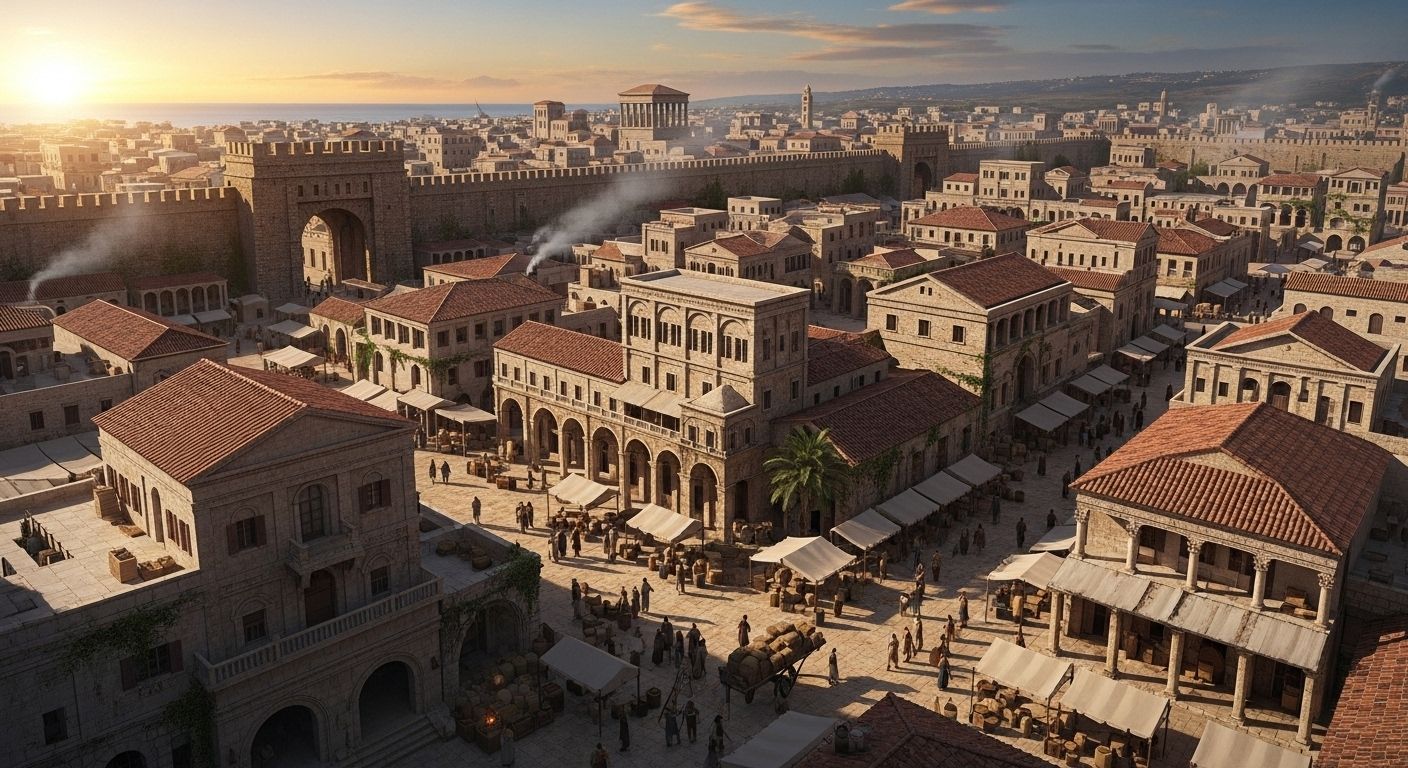
It was called the "Basiliad" (or Ptochoptopheion—a poorhouse).
It was a "new city" dedicated entirely to mercy, a complex so vast it was called a "wonder of the world". Historians argue it was, in effect, the world's first true hospital.
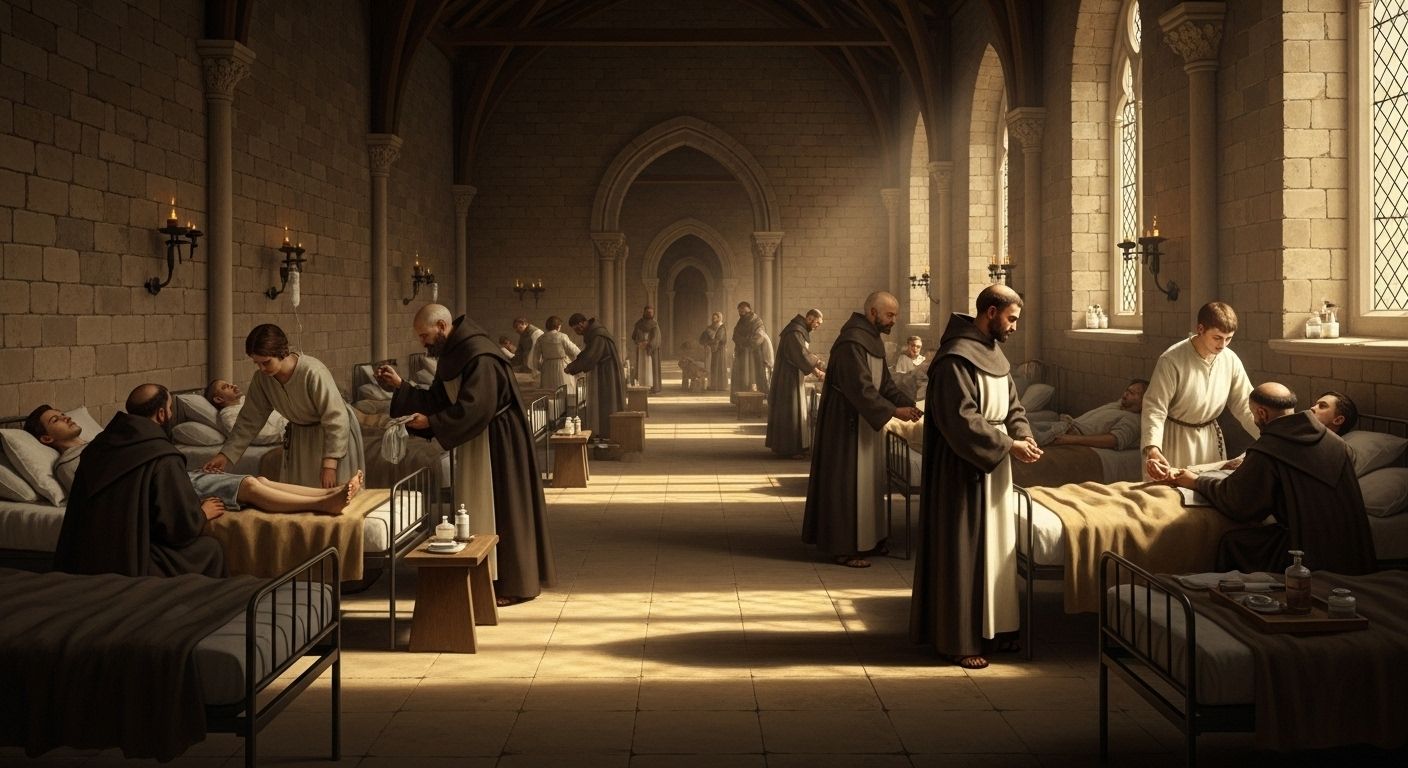
This complex included:
A hospice for the dying.
A poorhouse for the destitute.
A safe house for travelers and orphans.
A specialized clinic for the sick, staffed with physicians.
And most radically... a dedicated care center for lepers, a class of people "driven from cities, homes, and market places".
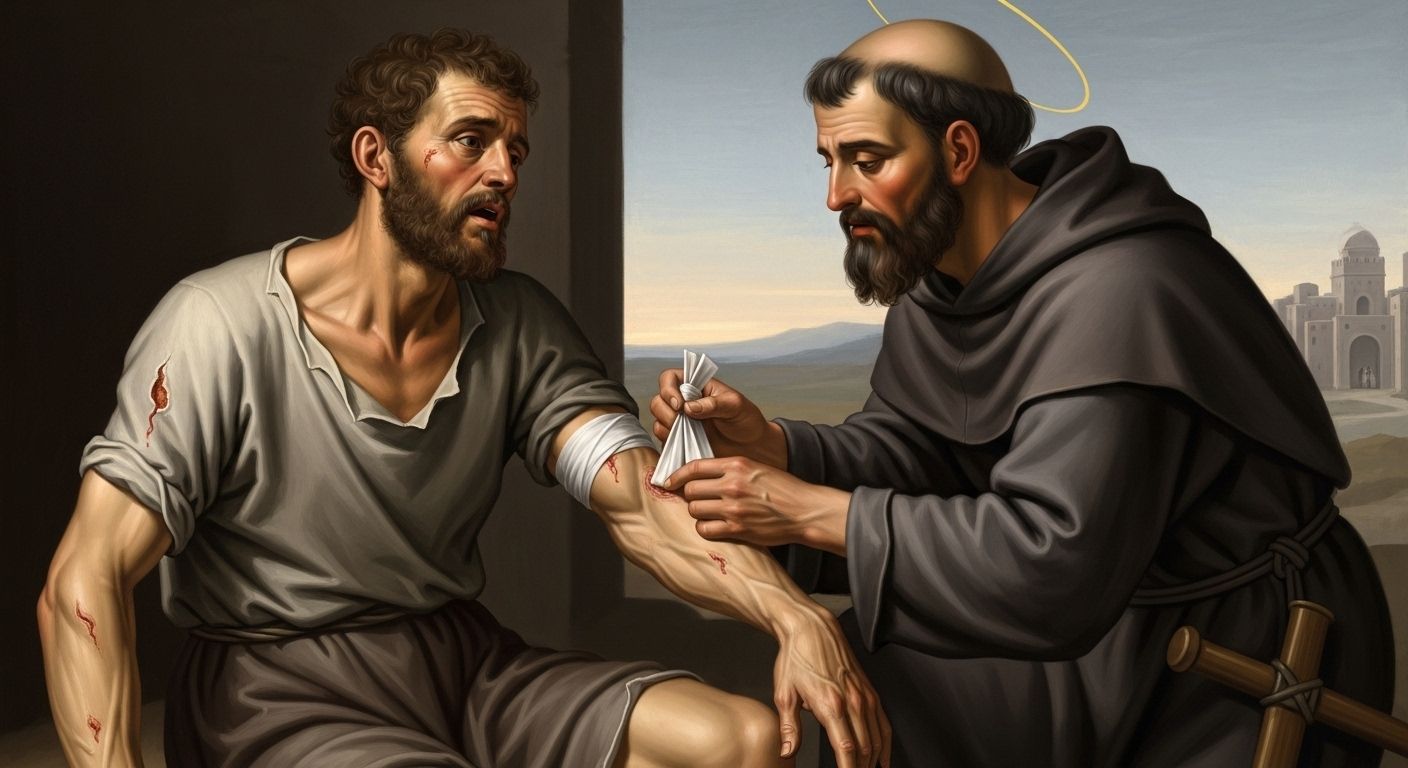
This wasn't a "church." This was a "major social revolution". Basil channeled all his theological conviction into a physical institution that served the most "oppressed poor". He put his money (and his life) where his mouth was.
Part 5: The 1-Minute Takeaway (The "Rule")
So what's the "hack" for us?
Basil is known as the "father of Eastern monasticism" , but his "Rule" wasn't a strict, legalistic code. It was a set of scriptural principles for how to live a life of purpose.
His big idea? Community, Prayer, and Labor.
In his time, the church was being torn apart by factions and charismatic ascetics who fled to the desert to find God in isolation.
Basil’s solution was revolutionary: Stop hiding.
He argued that purpose isn't found in isolation; it's found in a "common life". You can't practice virtues like humility or charity if you're all alone.
He domesticated that wild, ascetic energy and channeled it. Instead of fleeing the world, he taught his monks to serve it. He harmonized deep contemplation with practical manual labor.
The takeaway: Your purpose isn't just what you believe; it's what you build. It's not found in an echo chamber. It's found by rolling up your sleeves, joining a community, and building something that serves the people right in front of you.

You just read some wild 4th-century "truth bombs." I want to know what you think.
Hit reply and tell me: Which of Basil's quotes on wealth (in Part 3) felt the most relevant (or convicting) to you today?
